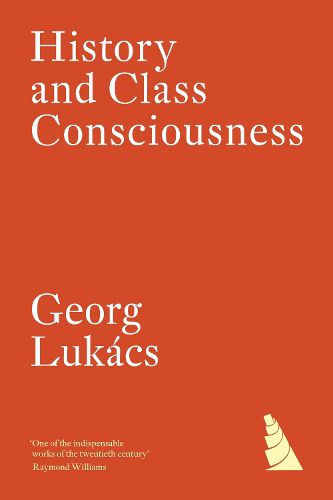Readings Newsletter
Become a Readings Member to make your shopping experience even easier.
Sign in or sign up for free!
You’re not far away from qualifying for FREE standard shipping within Australia
You’ve qualified for FREE standard shipping within Australia
The cart is loading…






History and Class Consciousness was the most important of Georg Lukacs's early theoretical writings, published in Germany in 1923. The subject of high praise and passionate criticism, it had a major impact on all the Marxist debates that followed, introducing key new concepts such as 'totality', 'reification' and 'imputed class consciousness'. This centenary edition, with a new preface by Michael Loewy, comprises a series of essays exploring, among other topics, the definition of orthodox Marxism, the question of legality and illegality, Rosa Luxemburg as a Marxist, the changing function of historic Marxism, and the substantiation and consciousness of the proletariat. This classic book has influenced many key philosophers of the twentieth and twenty-first centuries, including Adorno, Debord, Heidegger, Lefebvre, Merleau-Ponty and Zizek, and it can lay claim to being one of the cornerstones of contemporary thought.
$9.00 standard shipping within Australia
FREE standard shipping within Australia for orders over $100.00
Express & International shipping calculated at checkout
History and Class Consciousness was the most important of Georg Lukacs's early theoretical writings, published in Germany in 1923. The subject of high praise and passionate criticism, it had a major impact on all the Marxist debates that followed, introducing key new concepts such as 'totality', 'reification' and 'imputed class consciousness'. This centenary edition, with a new preface by Michael Loewy, comprises a series of essays exploring, among other topics, the definition of orthodox Marxism, the question of legality and illegality, Rosa Luxemburg as a Marxist, the changing function of historic Marxism, and the substantiation and consciousness of the proletariat. This classic book has influenced many key philosophers of the twentieth and twenty-first centuries, including Adorno, Debord, Heidegger, Lefebvre, Merleau-Ponty and Zizek, and it can lay claim to being one of the cornerstones of contemporary thought.